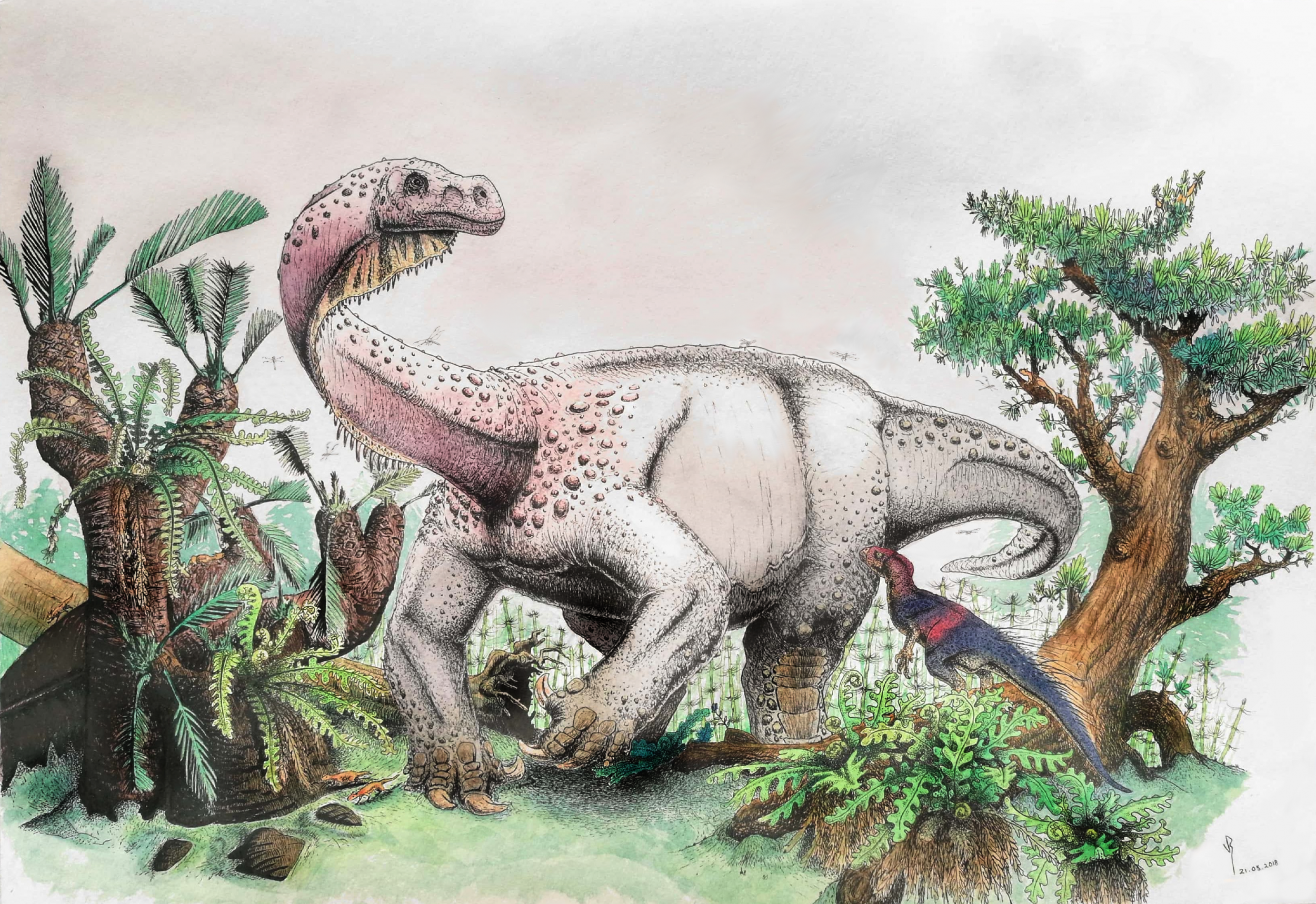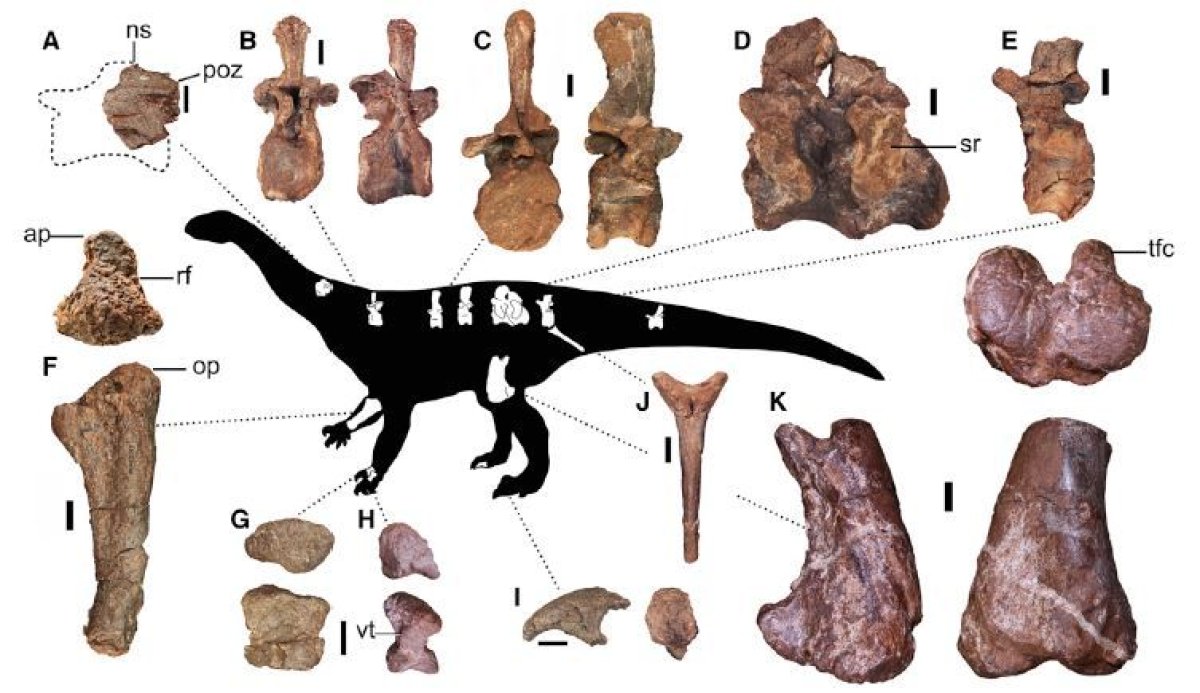
A 13-ton dinosaur that lived 200 million years ago has been discovered in Africa and named Giant Thunderclap at Dawn. The new species, Ledumahadi mafube, is a relative of the brontosaurus, belonging to the sauropodomorpha clade, but it existed far earlier—over 40 million years—right at the dawn of the Jurassic period.
The dinosaur was discovered on the border of South Africa and Lesotho in 2012. It took a number of years to excavate, but eventually researchers from the University of the Witwatersrand in Johannesburg were left with a collection of bones belonging to a massive dinosaur that lived between 195 million and 200 million years ago.
Analysis of the fossil revealed the creature was a distant and early relative of sauropods—the clade, or evolutionary branch, that claims the biggest dinosaur ever to have lived. The scientists, writing in Current Biology, said that at the time it lived, L. mafube would have been the largest land animal to have ever existed. The specimen unearthed, scientists discovered, was a fully grown adult—around 14 years old and weighing 26,500 pounds.
As well as showing that sauropodomorpha had evolved huge body sizes early on in their history, the analysis of L. mafube revealed something else about the clade: Unlike many of its own ancestors, it walked on all fours.
This discovery indicates that other early sauropodomorphs might have been "experimenting" with walking on all fours, and that the evolution of huge column-like legs characteristic of later sauropods is not as simple as previously thought.
"It means that walking on all fours came first, before truly gigantic body size, and that it took a while to 'perfect' quadrupedal locomotion," study author Jonah Choiniere told Newsweek.

Stephen Brusatte, a paleontologist from Britain's University of Edinburgh, who was not involved in the study, said the discovery was "important" and "unexpected."
"It gives new insight into how dinosaurs evolved gigantic body size," he told Newsweek. "Ledumahadi is a cousin of the giant long-necked sauropods like diplodocus and brontosaurus, so it's perhaps not so surprising that it's a big animal. But it's only a distant relative of the sauropods, and it evolved its huge size independently of the sauropods.
"Most striking, it has a very different limb posture from the sauropods. The sauropods were like Greek temples—they had columnar limbs, held straight under the bodies to hold up their massive bulk. But Ledumahadi had flexed limbs, like more primitive dinosaurs," Brusatte said.
He continued, "This tells us that different groups of early dinosaurs were experimenting with different ways of becoming large…before ultimately the true sauropods hit on their column-limbed design that was perfectly suited for supporting monstrous size, and this is what enabled them to grow into the largest animals to ever live on land in the history of the Earth—some of them bigger than Boeing 737s."
It is not clear what drove L. mafube to extinction. However, it co-existed with other quadrupedal sauropods for only a short time, so researchers suggest it may have disappeared as a result of competition. Sauropods may have had energy-saving adaptations that L. mafube just couldn't compete with.
Uncommon Knowledge
Newsweek is committed to challenging conventional wisdom and finding connections in the search for common ground.
Newsweek is committed to challenging conventional wisdom and finding connections in the search for common ground.
About the writer
Hannah Osborne is Nesweek's Science Editor, based in London, UK. Hannah joined Newsweek in 2017 from IBTimes UK. She is ... Read more
To read how Newsweek uses AI as a newsroom tool, Click here.








